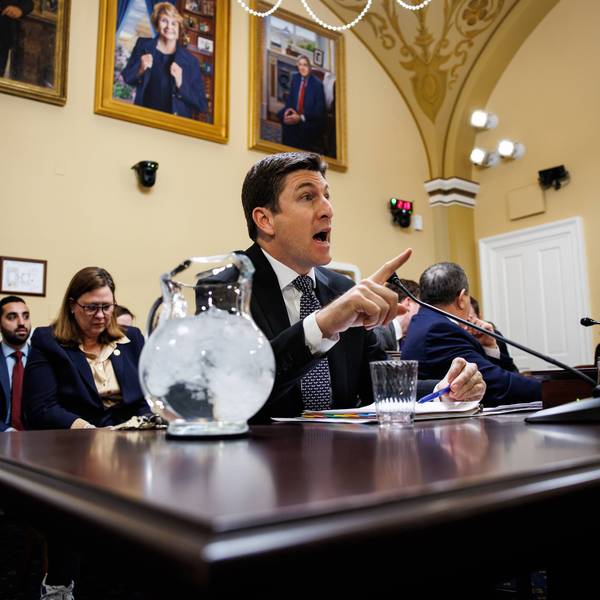Laws that require voters to present identification at the polls reduced voter turnout in the 2008 and 2012 general elections, according to a report released Wednesday from the U.S. Government Accountability Office (GAO).
Further, voter ID laws decreased turnout to a greater degree among new, young, and African-American voters.
The GAO's analysis looked at turnout in Kansas and Tennessee, which have voter ID laws, compared to four other states--Alabama, Arkansas, Delaware, and Maine.
Republicans have touted voter ID laws as necessary to prevent voter fraud.
However, the congressional watchdog states that "the studies GAO reviewed identified few instances of in-person voter fraud," though it noted that there are challenges to gathering information needed to make such estimates.
The report comes as a result of a 2012 request from Senators Bernie Sanders (I-Vt.), Patrick Leahy (D-Vt.), Richard Durbin (D-Ill.), Charles Schumer (D-N.Y.) and Bill Nelson (D-Fla.), after what they saw as an "alarming number" of new state laws that they said could make it more difficult to vote.
"We must make it easier, not harder, for poor and working people to vote and to participate in the political process," Sen. Sanders said in a statement following the release of the GAO report.
"These state laws aren't really intended to discourage fraud, they're intended to discourage voting. The GAO looked at study after study and found no credible evidence of voter fraud having had any impact whatsoever on the outcome of any election in recent history," he continued.
Sen. Leahy added, "The right to vote is fundamental and foundational to our democracy."
"Each generation has a role to play in safeguarding this constitutional right. This new analysis from GAO reaffirms what many in Congress already know: Threats to the right to vote still exist. That is why Congress must act to restore the fundamental protections of the Voting Rights Act that have been gutted by the Supreme Court," Leahy said.



